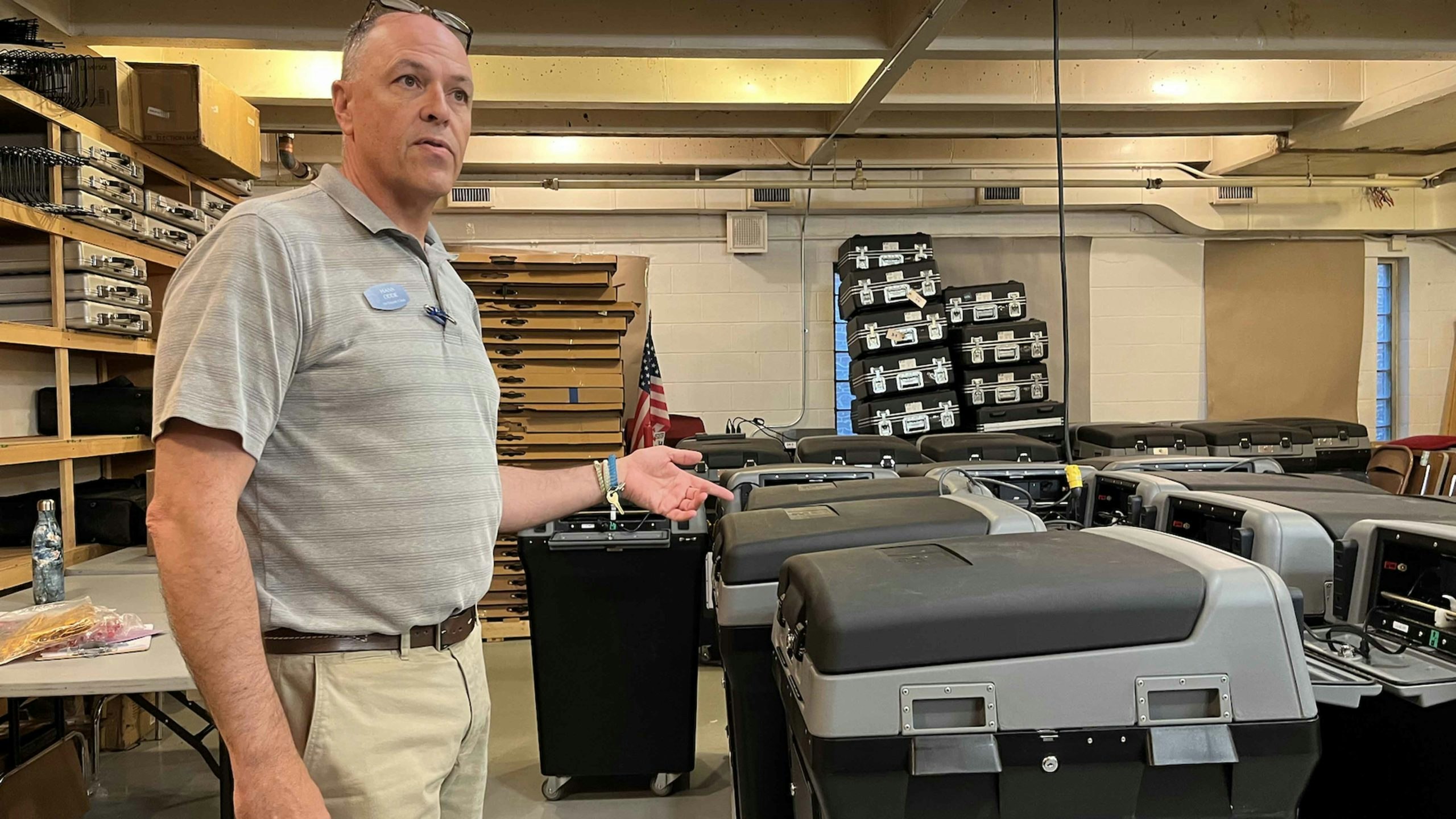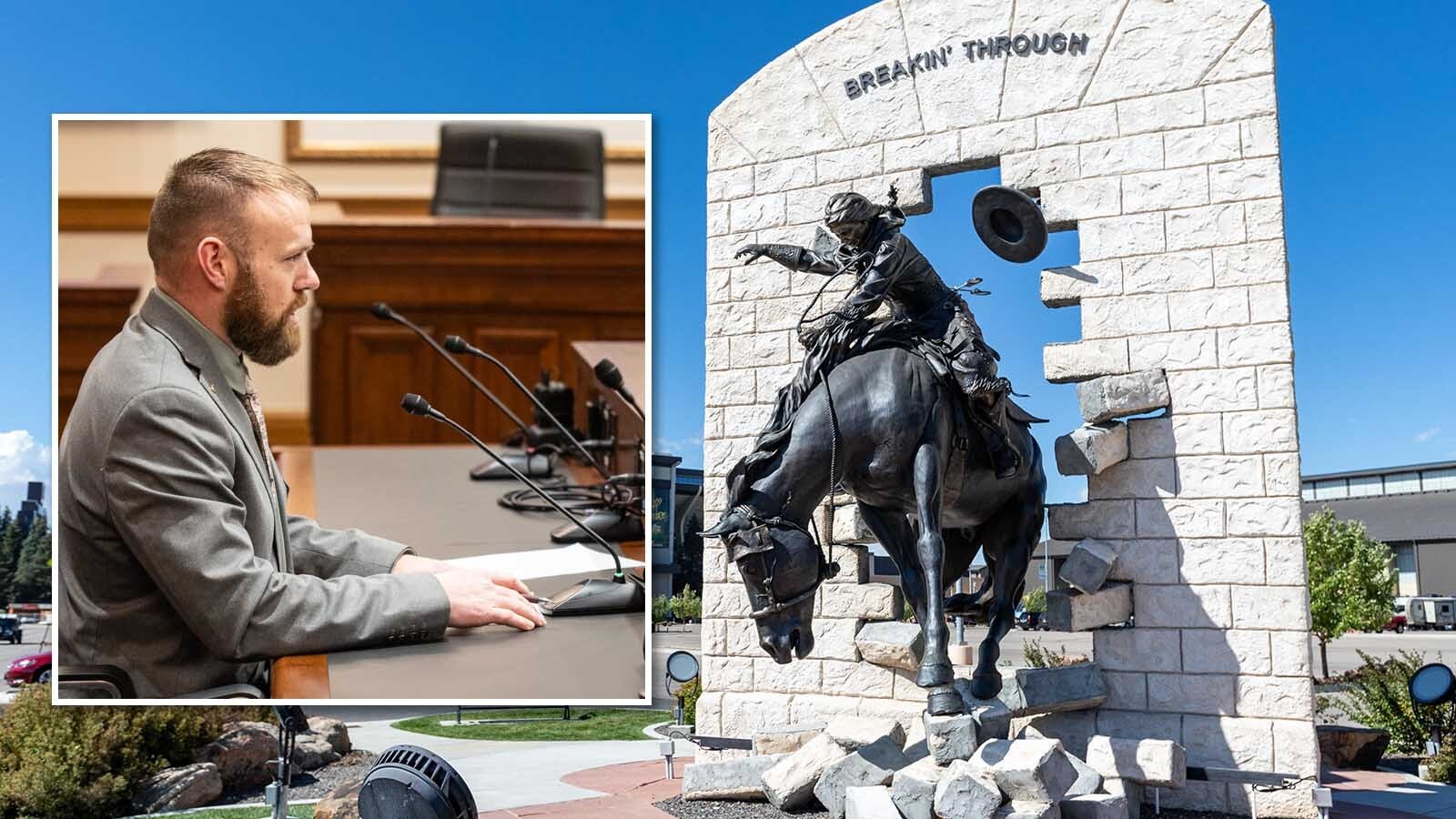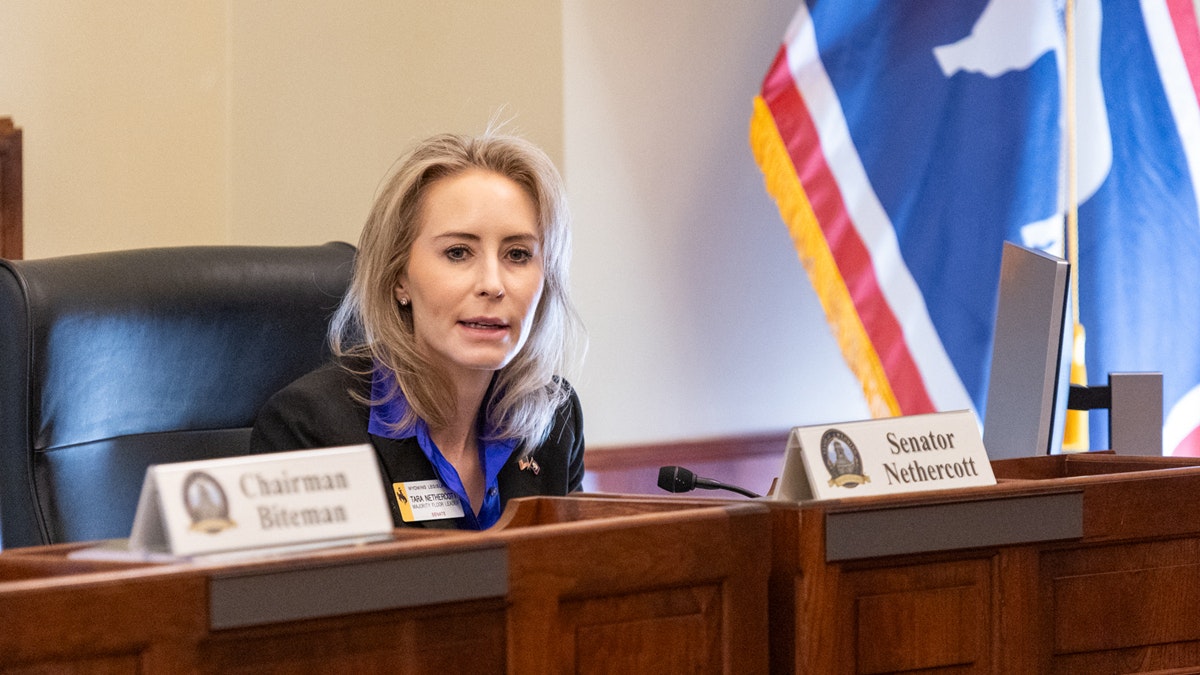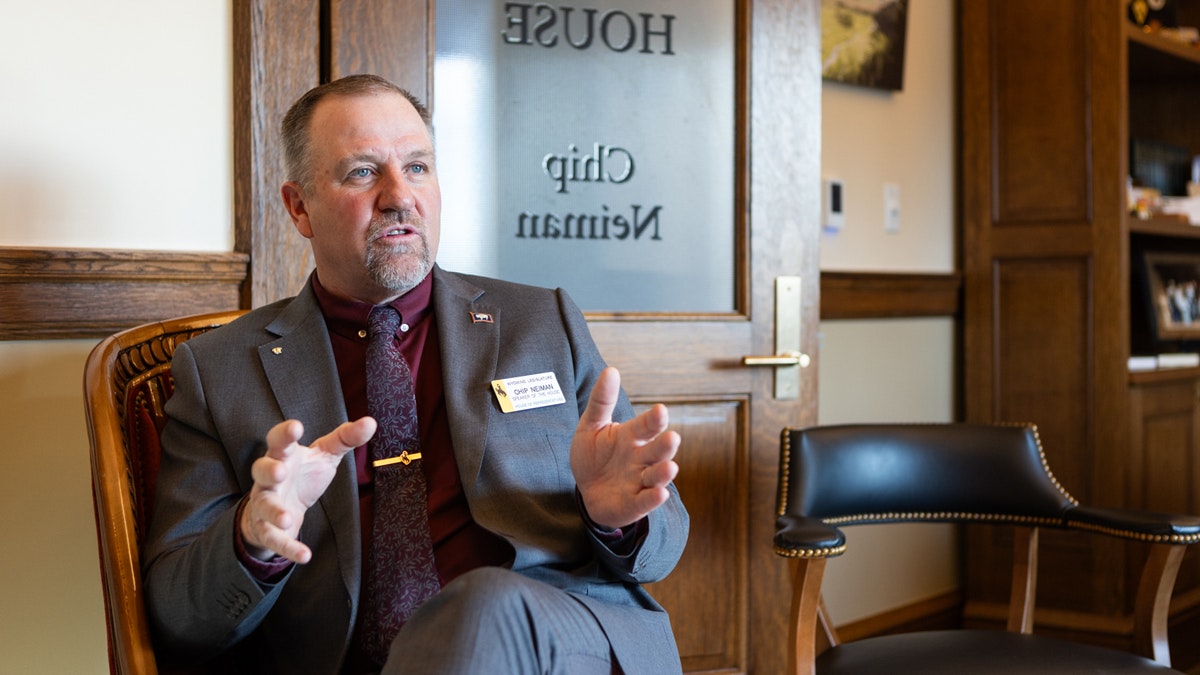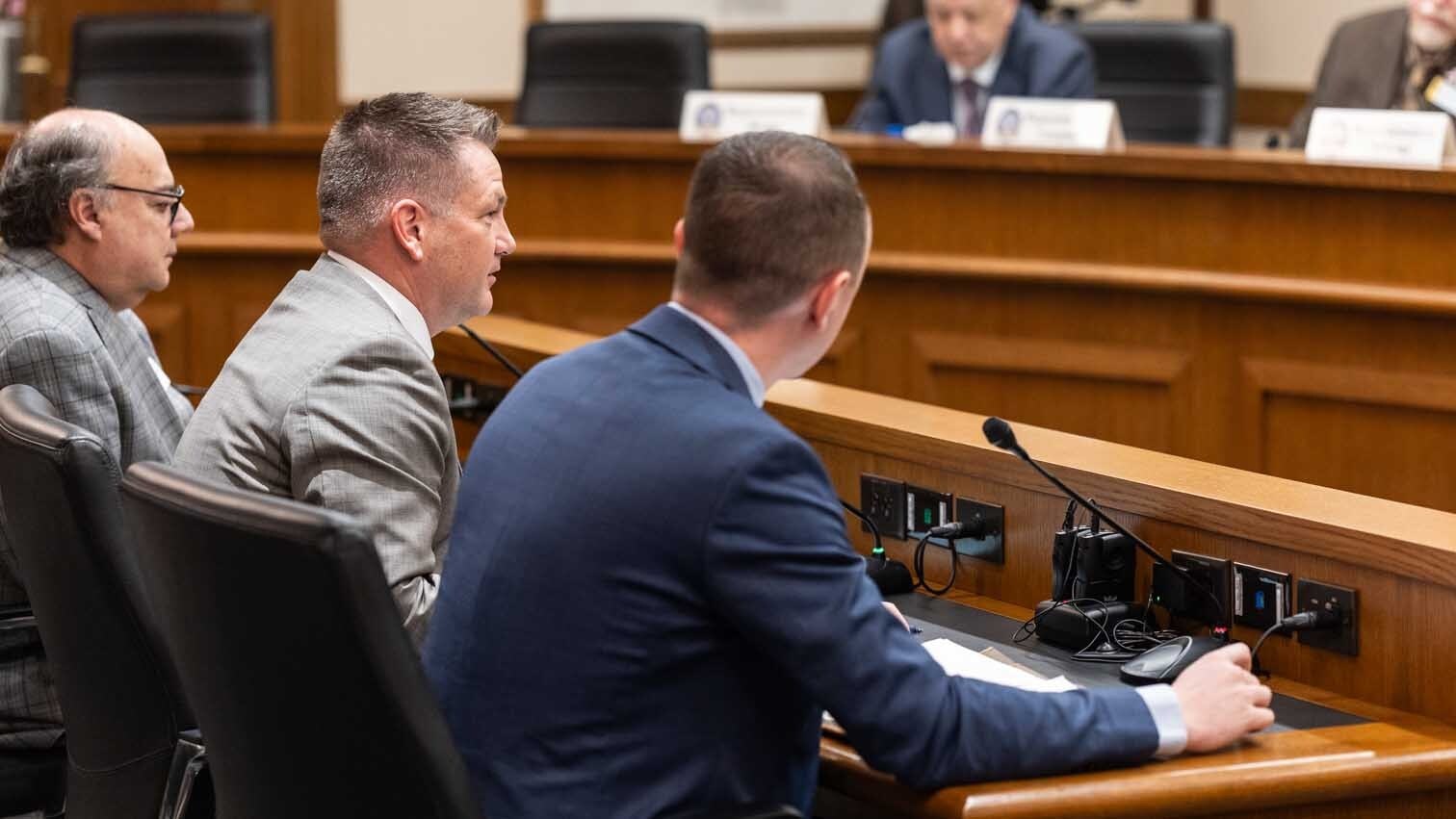It was all too fitting that the integrity of Park County’s election equipment was tested Thursday morning inside the confines of an old jail.
The election department uses this locked and surveilled facility to store its election equipment before it’s hauled out for use each election.
The county’s election officials didn’t find any performance issues with the 13 voting machines they tested Thursday morning.
That didn’t change the minds of some local residents who are pushing for hand counting ballots in future elections. The machine skeptics saw the tests first hand and verbally agreed with the results and procedures election staff took, but it did not change their desire for the state to hand count all election ballots.
“It hasn’t changed my opinion about the need for paper ballots,” said Powell resident Larry French, a Park County Republican Party committeeman.
In May, the Park County Commissioners said they would consider allowing French and other members of the Park County Republican Men’s Club and Boone Tidwell, a man associated with the Oathkeepers, to hand count the more than 17,000 ballots cast in the 2020 election in that county to determine the accuracy of the results presented by the machines.
They are still waiting for guidance from the Wyoming Attorney General’s Office on the matter.
Park County Commissioner Dossie Overfield said the county is still waiting for an answer from Wyoming Attorney General Bridget Hill.
“I think she’s just going to sit on it and not do anything until it’s too late,” French said.
Tests and Distrust
Park County Deputy Clerk Hans Odde guided the public through the procedures of the test.
“I will not talk politics or anything like that,” he told the roughly dozen in attendance before initiating the test.
For French, his opposition to voting machines doesn’t come down to trusting local election staff to do their jobs or the legitimacy of the tests they run on the machines. It’s more of a distrust for the electronic equipment as a whole.
Although irregularities were found pertaining to certain aspects of the 2020 election, no widespread fraud or voting machine flaws have ever been proven. Many have blamed former President Donald Trump for spreading inaccurate information about this topic.
Odde’s staff was recently able to discover one problem in this year’s primary ballots before it was too late. Due to a result of Legislature’s redistricting, an error was found regarding districts people could vote on in a low-population precinct north of Powell. Odde said his department rectified the mistake and no absentee or early voters ever cast the faulty ballots.
Machine tests are performed before every primary and general election.


“Machines Can Be Fooled”
French and Park County Republican Party Chairman Martin Kimmet, who were at Thursday’s test, have both served as election judges in the past.
Kimmet trusts Odde and the methods taken in the test and called the ES&S voting machines tested, the most secure voting machines that exist, but added he would still like all machines removed from elections.
“It’s a machine and any machine can be fooled,” he said. “I’ve voted in a lot of elections that voted on a paper ballot, so I know they work.”
In 1957, the Wyoming State Legislature permitted the use of automated voting machines in the Cowboy State, according to the State Archives.
Punch card voting developed in the 1960s, allowing voters to punch holes in cards to select candidates with a “ballot marking device.” Around 2004, the State of Wyoming started transitioning to digital voting machines.
Park County and the rest of Wyoming now use ES&S voting machines. In 2020, the state signed a $5.4 million contract with ES&S to provide the entire state with voting machines. No other machines are used in the state.
“Can’t See Inside Machines”
Tim Lasseter, who is running for county clerk in Park County believes the validity of tests run on Thursday. He said it’s a distrust of the ES&S software and the fact that any test of the equipment runs under the company’s guidelines that still gives him concerns about election integrity.
“I believe what’s said but I can’t see inside the machines,” Lasseter said. “I need to see what’s inside the machines.”
Due to the proprietary software inside their machines, ES&S only allows its staff members to service their machines. Odde said the company’s staff perform service checks on the voting machines biannually before each election.
Lasseter said he would like an independent organization to test the machines.
“If nothing else, for the public’s confidence in the state,” he said. Lasseter and French said they’ve had a number of people tell them they don’t plan to vote because they lost faith in the sanctity of elections.


Passionate Divide
The issue of election integrity is one of passionate divide in America. It has also been a main talking point within the Wyoming Secretary of State race, with certain candidates expressing confidence in the current security of Wyoming’s elections, while other candidates have made pledges to remove drop ballot boxes placed outside government buildings and enact other new security measures.
Certain voting rights advocates have argued these efforts make it harder for people to vote and subdue voter turnout.
French said those who oppose questioning election security and efforts like his hand count proposal are “part of the problem.”
“It’s a threat to the power systems,” he said. “Why anybody would be scared of verifying elections is beyond me. You’re part of the problem if you don’t want to be part of the solution.”
Dan Schein, who is running for Cody City Council, asked many questions during the public test, but said he remains fully convinced Wyoming elections are secure and does not want voting machines removed.
“I have great faith in the machines and the process,” he said.
Schein said he believes some people are trying to “create concerns where concerns don’t exist.”
“These machines aren’t biased or racist,” he said. “I don’t see any individual being that independent.”
Nuts and Bolts
The test results poured out of the machines in streams, falling silently to the floor in long white rolls.
Odde said there are no modems or any other devices inside the machines that would allow them to connect to any external sources like the internet.
“Please understand that,” he said.
There is a microchip inside each voting machine, which Schein, who works in IT, said allows the machine to operate similarly to a laptop without an internet or bluetooth connection.
Odde said if a power outage occurs on election day, the machines have about six hours of time they can run on a backup battery. The county also has a universal power supply it can tap into to support the machines if a situation like this were to arise.
Odde said the only time write-in ballots are individually counted is when they could affect or determine the result of a race. He mentioned how no one is running for a town council seat in the small town of Frannie, so write-in ballots will solely determine the winner of that race.
Odde stressed that there is a chain of custody watching over all election equipment at all times.
Using around 1,200 test ballots, each machine was tested for its ability to effectively count ballots and identify when problems arise, such as multiple ballots cast by one voter, ballots cast in the wrong precinct, over and undervoting.
Overvoting occurs when an individual votes for two or more candidates in a particular race, while undervoting takes place when someone doesn’t cast a vote in a race.
Odde said overvoted ballots are considered spoiled and removed from the ballots fair for tabulation. In those scenarios the voter who overvoted is given the opportunity to cast a new ballot.
His staff member Kaitlyn Johnson demonstrated what happens when a ballot from the wrong precinct is fed into a machine. The machine rejects the ballot with a high pitched beeping noise.
A separate machine known as a DS450 is used to count absentee and early ballots. Odde said this machine counts ballots much faster than the other machines. To date, he said there have been around 1,700 absentee and early voters in Park County, far fewer than the 4,873 absentee and early votes cast during the 2020 primary.

